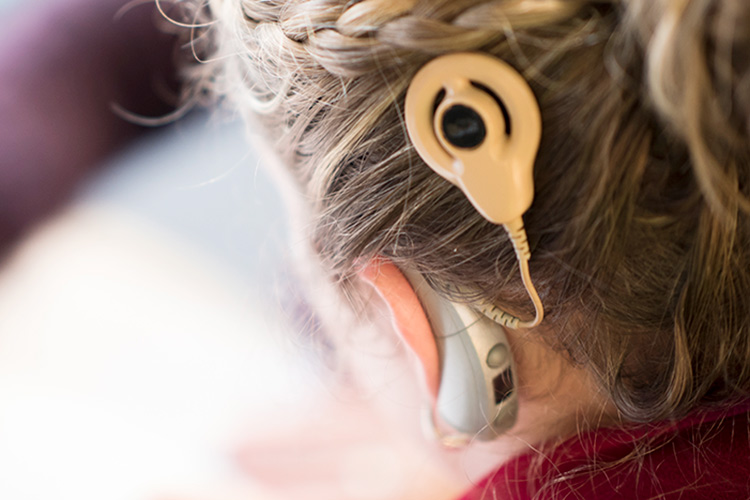Accessibility services
The Accessibility Service is a free service to support Otago Polytechnic/Te Pūkenga students who identify as neurodiverse, as having a physical impairment, or have an injury or medical condition that is impacting upon their ability to participate in learning. Our aim is to support you to succeed.
How can we help you?
The Accessibility Service is here to support you with any learning challenges or barriers you may be experiencing. You do not require a diagnosis to access our service. However, there are certain supports we utilise that do, such as special assessment conditions for exams.
Accessibility service at OP
We have a range of accessibility services to assist students with their studies. These include:
This involves requesting alternative conditions for examinations or assessments, to make the experience more equitable. For example, learner’s with dyslexia can request to use a reader/writer and extra time for their examinations.
Under NZQA guidelines, a diagnosis or supporting letter from a medical practitioner is required to request this support.
There are many forms of technology that can assist learners with their studies. Our Assistive Technology page has more information about some of the available options.
Your Accessibility Advisor can support you to find, download and use assistive technology, and if required source specialised equipment, to aid your learning.
Peer tutors are fellow students, who have studied the same, or similar papers to those you are currently studying. A peer tutor can answer individual questions, explain processes, and provide you with course related academic support.
Peer tutors assist you to understand the content you are learning.
The Accessibility Advisor's role is dedicated to ensuring the needs of all students are fully supported during their studies at Otago Polytechnic/Te Pūkenga. Your Accessibility Advisor can also support you to access counselling and wellbeing services.
Our Accessibility Advisors can work with students to help them apply for financial assistance to access equipment and services. They can also source equipment on a short-term basis, while students apply and look for their own equipment.
If you feel your neurodiversity, impairment, medical condition or injury may impact your learning, please meet with an Accessibility Advisor early in your learning journey. Your Accessibility Advisor can help identify what is (or may) impacting on your studies, what you need to do to stay on track, help you set goals and to problem solve.
Your Accessibility Advisor can also advocate for you by liaising with your lecturers. We will only communicate with your lecturers after getting your permission to do so.
Accessibility Advisors
Our Accessibility Advisors provide support tailored to your individual needs. This may include classroom notetakers, readers/writers, tutors, equipment, assistive technology, orientation and liaison with lecturing staff and community agencies.


How can I access the Accessibility Service?
Our Accessibility Advisors provide support tailored to your individual needs, we are here to help you, so please get in touch.
-
In person
We are located at Student Success in the Dunedin Campus Hub. You can come to Student Success in person to make an appointment.
-
Online booking
You can make an appointment with an Accessibility Advisor through our online booking system. You can also access our booking system through Kāpehu.
-
Email
You can contact the Accessibility Service by sending an email to accessibility@op.ac.nz or studentsuccessdn@op.ac.nz.
-
Phone
You can contact the Accessibility Service by calling 0800 762 786 and asking for the Accessibility Service at Student Success.
What does support from the Accessibility Service look like?
Types of Accessibility Service support
During the initial meeting with your Accessibility Advisor, you will be invited to share your perspectives on what your learning strengths are, and what some of your challenges may be. This is an opportunity for the Accessibility Advisor and you to get to know each other and to develop a learning support plan.
Your Accessibility Advisor will support you to develop a learning support plan. The primary goals of our learning support plans are to empower you and to communicate your learning strengths and challenges to your lecturers, so they can better support you in your learning environments. What is included (or not included) in your learning support plan is completely your choice.
Your Accessibility Advisor can support you to develop strategies to manage your time more effectively. Your Accessibility Advisor can meet with you regularly throughout the semester to support you to stay on-track with your studies.
Communicating your concerns or needs to your lecturers can be challenging. Your Accessibility Advisor can support you to communicate with your lecturers, can contact them on your behalf, or can arrange and support you to meet with them.
Your Accessibility Advisor can support you to access additional learning supports, such as peer tutoring, accessing the notetaker service, or receiving academic support through the Student Success Learning Advisors.
Your Accessibility Advisor can support you by referring you onto internal and/or external supports. For example, to our wellbeing or counselling services for mental health challenges or to external organisations for diagnostic assessments.
Confidentiality and privacy
All information provided to staff will remain private and confidential. This means they will not disclose anything confidential unless:
-
You expect us to do so, and it is agreed on. Some disclosure might be necessary in order to provide the right support
-
You give us written permission
-
There is a compelling reason such as significant risk to yourself or others.
Supporting documentation
If you have received a diagnostic assessment or are receiving treatment from a medical professional, please bring along any supporting documentation you have to your initial accessibility appointment.
If you have not received a formal diagnosis but feel that your learning is being negatively impacted by a learning impairment, you can still access support from our service. This may however limit the supports that can be put in place due to NZQA requirements.
Choosing a programme
When choosing a programme of study, it is important to understand the programme requirements. You may have to do placements, fieldwork or laboratory tasks to complete your qualification.
If you are uncertain whether you are able to meet these requirements, you should contact the Programme Manager to discuss this. The Accessibility Service can help you with this. Sometimes adjustments can be made to the learning environment to help you with your chosen study path.
These adjustments could include:
-
Alternative examination/assessment arrangements
-
Access to assistive technology
-
Access to peer note taking.
Accessible facilities
Wheelchair accessible showers
-
A Block (Engineering) - A124
-
M Block (Hospitality) - M125 (Males) M126 (Females)
-
P Block (School of Art) - P104a
-
Y Block - Y102
Parking
There are a number of mobility carparks around the Dunedin campus available for students to use with the applicable parking permit. Please refer to the map below for locations.
Sargood Centre (Institute of Sport and Adventure)
The Sargood Centre contains disability toilets, wheelchair accessible showers and disability parking.
Understand the Pastoral Care Code
Get to know what the Pastoral Care Code says about disability support. At Otago Polytechnic, our Accessibility Advisors are here to facilitate your learning experience. Watch this video

I really appreciated the extra support available to me to help with my dyslexia.
Student reflection
Throughout my three years of tertiary-level studies I have found Student Success to be extremely beneficial. All the staff were very supportive and took the time to provide extra assistance to help my training. I really appreciated the extra support available to me to help with my dyslexia and being given extra time in my exams. I also utilised Student Success for extra assistance with my assignments and resumé and found this to be really helpful.

